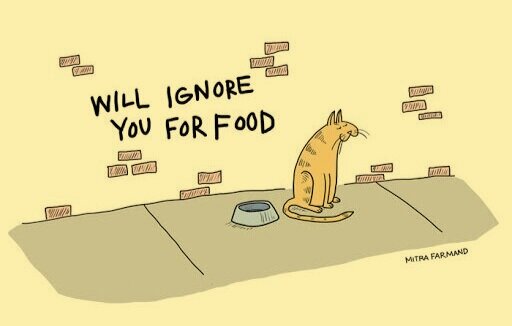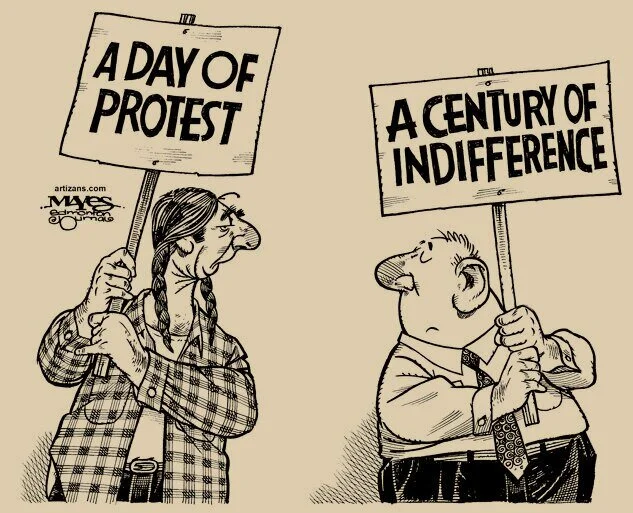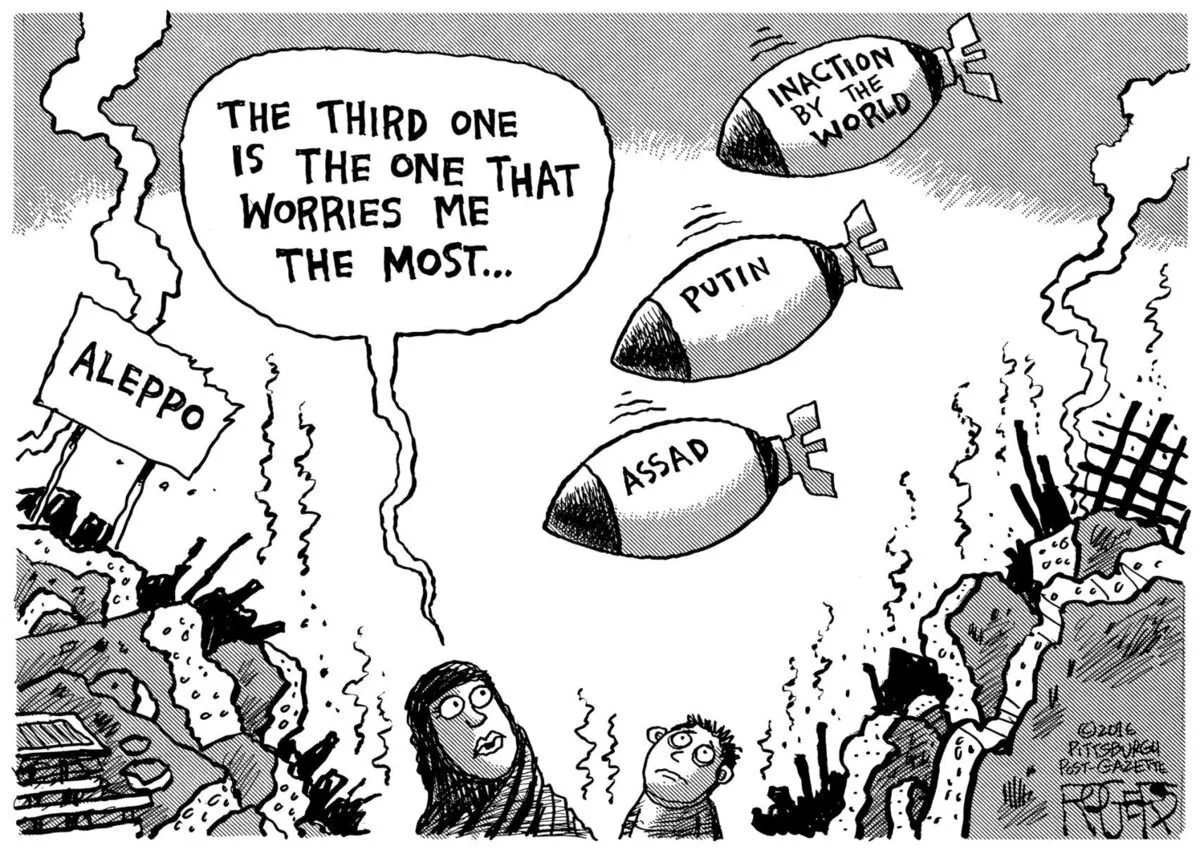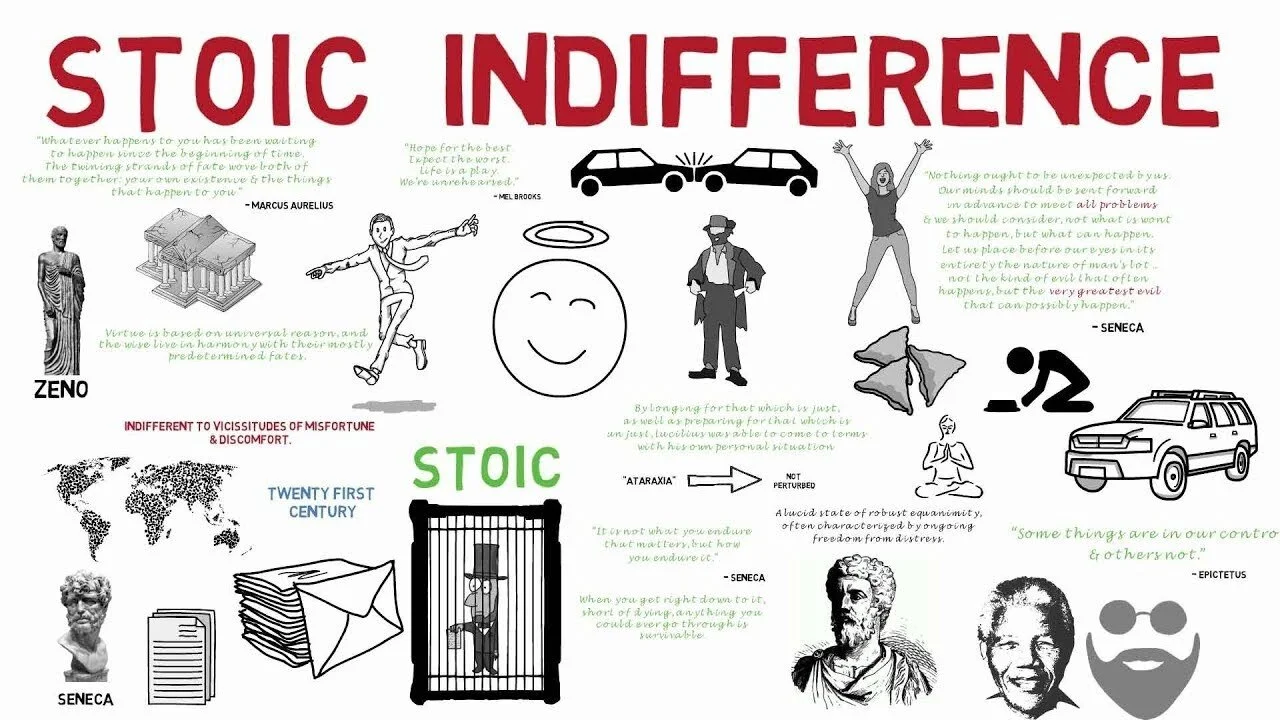By The Landlord
“Elizabeth had never been more at a loss to make her feelings appear what they were not. It was necessary to laugh, when she would rather have cried. Her father had most cruelly mortified her, by what he said of Mr. Darcy's indifference, and she could do nothing but wonder at such a want of penetration, or fear that perhaps, instead of his seeing too little, she might have fancied too much.” – Jane Austen, Pride and Prejudice
“The shoulders of Mr Verloc, without actually moving, suggested a shrug.” – Joseph Conrad, The Secret Agent.
“Lady Utterword: What a lovely night! It seems made for us."
Hector: The night takes no interest in us. What are we to the night?” – George Bernard Shaw, Heartbreak House
“Stones make no splash on a frozen lake.” – Steven Erikson, Midnight Tides
“Affection can withstand very severe storms of vigour, but not a long polar frost of indifference.” – Walter Scott
“The stars have no pity for what goes on below … An avalanche doesn't look back at the damage it causes … But indifference is a pose. Underneath, a heart is beating.” ― Marty Rubin
“The world's default mode is basic indifference. It'd like to care, but it's just got too much on at the moment.” ― David Mitchell
Is there anybody out there and does anybody care?
These are questions that might arise, for every soul at sometime in life, whether seeking any response, let alone recognition of one's own words, efforts, utterances, actions, existence, paw, claw or footprint, from a bird on a branch, twittering, to a person tapping all on their tod, also tweeting for attention.
Any voice singing out, any call to the wild, is always seeking affirmation, perhaps even a form of love, hopeful for almost any response, any reaction at all, any thing but silence. That's perhaps because the opposite of love is not, in fact hate, but indifference. Even a despiser, a rival, a critic, a troll, makes an effort. Nothing is more frightening in the social wilderness than the idea of being so ignored that, philosophically speaking, you don't exist, fallen like the proverbial tree in the woods, whether in the present or future, not even noticed, let alone forgotten by a universe that is ultimately cold, thoughtless, and remorselessly indifferent.
And indifference is perhaps the most powerful force in the world. It pervades everything. It’s a natural state, filtering out everything we do not want to see, from walking straight past homeless people to conflicts abroad, and all the evils of apathy, even letting the planet burn right on your doorstep, just continuing to play golf in Eagle Creek, Washington. Perhaps it comes from over-exposure and normalisation to things that should be abnormal. Or just being an utter imbecile.
And yet in the politics of relationships, this is the big flipside trick with indifference. Like gambling, there is always hope. When ignored, especially by someone of great interest, there is always the possibility that not all may be as it seems. In the game of love, or any matters of social tactic, where attention is sought, indifference might, after all, be feigned. And could there be any more pertinent and powerful form of flattery than feigned indifference? After all, whether you are Elizabeth Bennett toying with, or torn apart by the social complexities of affection in Pride and Prejudice, or our pet cats ignoring us to make us move towards them, moving away but looking over their shoulder, feigned to get more food and attention. We fall for it every time.
Cats are indifference specialists
“Indifference is the greatest aphrodisiac,” writes Andrew Holleran in Dancer from the Dance. “It's indifference that breaks hearts, not love,” adds Marty Rubin. So then, whether genuine or feigned, indifference comes into play for this week’s topic, songwriting could be seen as one of the biggest reactions against it
True or false, in love, politics or the natural world, it’s as all-pervasive as gravity, and with a pulling power just as immense. So tugging against it, what bigger form of attention-seeking is there than writing and performing a song? But how do songs deal with indifference?
Getting up on stage is certainly part of that, but for any young or new band, playing to a half-empty or utterly indifferent audience, most of whom have only come to see another band, is par for the course. And for the warm-up acts before the bands, this is even more the case, particularly poets or standup comedians shouting over a drunken audience. But for some this is what inspires. The brilliant standup Stewart Lee, who takes pride and shows acute skill in both parodying and berating his audience, and yet also making them laugh, was entirely inspired to take up his calling after seeing, in the early or mid 1980s legendary comedian Ted Chippington, possibly opening for either The Fall or The Nightingales at some venue in the English Midlands, whose style was so droll and dry that it worked entirely on the basis that no one laughed at all, perhaps jeered, but most likely completely ignored him. Indifference was made into an artform, an alternative, anti-comedy.
Standing up for the art of indifference. Stewart Lee and his inspiration, above, Ted Chippington
But most celebrities and public figures of any kind of course crave attention, because, as circus impresario PT Barnum and probably also Oscar Wilde said: “There’s no such thing as bad publicity.” In a brilliant parody of celebrity and trashy monster movies, The Simpsons mini-episode Attack of the 50 Foot Eyesores from Treehouse of horror VI sees the town being destroyed by giants who have some alive from huge advertising hoardings. But Lisa works out that these figures, like any other public monster from Trump to Kanye to the Kardashians, are simply all about clicks and ratings, and the way to destroy them is simply by ignoring them:
As the giant eyesores collapse with no attention to hold them up, George Eliot sums it up nicely: “Vanity is as ill at ease under indifference as tenderness is under a love which it cannot return.”
So then, there’s a long queue at the Bar today with many punters eager to be far from ignored, and I’m not entirely indifferent what they have to say about indifference. OK folks, don’t all shout at once! I’m not ignoring you, you’ll all get your turn. Politeness costs nothing, eh?
“Politeness is organised indifference,” says Paul Valéry with an opening gambit. Pardon me?
“It is now certain that the public does know. It is not so certain that the public does care,” proclaims G.K. Chesterton, feeling rather sorry for himself and quoting from his Autobiography.
“Yes. It’s so diffuse being alive. Suddenly one is aware that nobody really gives a damn,” adds Amiri Baraka.
“Well,” quotes Aldous Huxley from Eyeless In Gaza, from the opposite perspective. “That which besets me is indifference. I can't be bothered about people. Or rather, won't. For I avoid, carefully, all occasions for being bothered... Indifference is a form of sloth, and sloth in its turn is one of the symptoms of loveless-ness. One isn't lazy about what one loves. The problem is: how to love?”
How to love indeed? Here’s Elizabeth Gaskell, from North and South: “He almost said to himself that he did not like her, before their conversation ended; he tried so hard to compensate himself for the mortified feeling, that while he looked upon her with an admiration he could not repress, she looked at him with proud indifference, taking him, he thought, for what, in his irritation, he told himself - was a great fellow, with not a grace or a refinement about him.”
“Desire is half of life; indifference is half of death,” says Kahlil Gibran in Sand and Foam.
And here’s Jean Baudrillard, with Cool Memories, wrestling with real and affected indifference in the context of love:
“There is a particular grace in indifference to one's own life and the admission of that indifference is touching, just so long as you are told with tenderness: I am incapable of loving you, rather than being told 'I love you', with all the affectation appropriate to such a statement. There are indeed certain women who can only love in proportion to the degree of boredom they feel with themselves: with them, above all you must not bring them out of their boredom. There is, however, a great difference between real and affected indifference: only the former touches us. But it is very rare, almost as rare as beauty or madness.”
Indifference is a form of slow torture when it comes to matters of the heart, and perhaps that’s why it is such an inspiration to the agonised mind of the songwriter, who writes while waiting to find out whether the person they desire cares at all. “There is nothing harder than the softness of indifference,” adds Juan Montalvo.
And here Iris Murdoch points out one of the great illogical sides to love: "The absolute yearning of one human body for another particular body and its indifference to substitutes is one of life's major mysteries.”
Miles Davis?
But being as we are a messy bags of changeable chemicals, where does indifference sit in the human condition? Most of the time we are perhaps neither indifferent nor care. To address this, only the Song Bar can the 18th century philosopher Edmund Burke, author of A Philosophical Enquiry into the Origin of our Ideas of the Sublime and Beautiful, be sat at a table having a beer with Scotland’s Irvine Welsh, author of Trainspotting and other great modern works of Scottish vernacular. Edmund reckons: “The human mind is often, and I think it is for the most part, in a state neither of pain nor pleasure, which I call a state of indifference.”
And here’s Irvine, reading from the perspective of one character who is determined to be indifferent about a pub argument about sci-fi films, but struggles with it, as shown in his novel Porno: “He’s going on and on, and I can't be bothered. I just can't be fuckin’ well arsed saying something like: Solaris shites all over 2001, and then listening to him arguing vehemently against it … I can't be bothered with it and I can't even be bothered to tell him that I can'be be bothered.”
But while some struggle with indifference, others are convinced that the universe is essentially cold and uncaring. Here’s Richard Dawkins, from River Out of Eden: A Darwinian View of Life:
“The total amount of suffering per year in the natural world is beyond all decent contemplation. During the minute that it takes me to compose this sentence, thousands of animals are being eaten alive, many others are running for their lives, whimpering with fear, others are slowly being devoured from within by rasping parasites, thousands of all kinds are dying of starvation, thirst, and disease. It must be so. If there ever is a time of plenty, this very fact will automatically lead to an increase in the population until the natural state of starvation and misery is restored. In a universe of electrons and selfish genes, blind physical forces and genetic replication, some people are going to get hurt, other people are going to get lucky, and you won't find any rhyme or reason in it, nor any justice. The universe that we observe has precisely the properties we should expect if there is, at bottom, no design, no purpose, no evil, no good, nothing but pitiless indifference.”
And beside him is Rudyard Kipling, who adds, from The Light That Failed: “The world is very lovely, and it's very horrible--and it doesn't care about your life or mine or anything else.”
So is indifference a reaction to the harshness of the world? But is that also why some turn to religion, something that Dawkins famously opposes? This opens up further twists in the indifference debate, as religion, like those celebrity hoarding sand celebrities, requires anything but indifference. “Nothing is so fatal to religion as indifference,” says Edmund Burke, returning to the discussion.
“Well,” adds Marty Rubin again, who certainly has a lot to say about this topic, “I prefer Nature's indifference to God's love.”
From religion to politics and while those in power absolutely crave attention in order to get the vote, public indifference is also key to them holding on to power.
Signs of history
“Throughout history, it has been the inaction of those who could have acted; the indifference of those who should have known better; the silence of the voice of justice when it mattered most; that has made it possible for evil to triumph,” says Haile Selassie.
“Our lives begin to end the day we become silent about things that matter,” adds Martin Luther King.
“The worst sin toward our fellow creatures is not to hate them, but to be indifferent to them: that's the essence of inhumanity,” says George Bernard Shaw.
“The death of democracy is not likely to be an assassination from ambush. It will be a slow extinction from apathy, indifference, and undernourishment,” suggests Robert M. Hutchins.
Visitors to the Bar are very far from indifferent about this side of things with a crowd for more writers adding to this perspective:
Indifference is the deadliest weapon of all
“There is nothing in the world so monstrously vast as our indifference,” says Machado de Assis.
“And tolerance is another word for indifference,” adds Somerset Maugham
“Indifference and neglect often do much more damage than outright dislike,” chips in J. K. Rowling.
And, Hermann Broch, quoting from The Guiltless, goes so far as to say that “political indifference is closely linked to ethical depravity.” In some notorious periods of history, that could certainly be seen to be the case, and arguably is just as dangerous now as it was in the 1930s. Maybe let’s take a break now for a song, which could count as a first nomination that covers both indifference, but also a large slice of apathy and over politeness. It’s Soccer96 with guest vocalist Alabaster DePlume, a previous Song of the Day:
I was gonna fight fascism
I was gonna
I was just a bit tired
I was gonna fight fascism
I was gonna
Just didn’t wanna be rude
I was gonna fight fascism
But honestly I just had so much on
You literally wouldn’t believe it
This certainly captures, in a lightly humorous way, the pervasive quality of indifference, backed up now but yet more visitors. Marty Rubin has even more to say about it. “One should never underestimate how callous or indifferent people can be when it's in their interest to be so.”
“In the face of mass atrocities, we stand in mass indifference rationalised by logic that sees us through the day,” says Aysha Taryam.
“Science may have found a cure for most evils; but it has found no remedy for the worst of them all – the apathy of human beings,” says Helen Keller.
And author Peter Marshall sums it up well with this: “A different world cannot be built by indifferent people.”
But there’s another element to indifference, which is how it is used as a means for survival, a mental mechanism to shield oneself not only from the world’s horrors, but also to enact them. Marty Rubin isn’t necessarily pointing evil actions when he says “there are obstacles one can surmount only through indifference,” they may simply be life challenges, but in the case of Lionel Shriver, We Need to Talk About Kevin, a portrait of a teenage psychopath, “indifference would ultimately commend itself as a devastating weapon.”
It’s a way through …
Anton Chekhov, meanwhile in his Selected Stories: “They say philosophers and wise men are indifferent. Wrong. Indifference is a paralysis of the soul, a premature death.”
Fyodor Dostoevsky, with The Dream of a Ridiculous Man, takes things to an even darker level:
“Killing myself was a matter of such indifference to me that I felt like waiting for a moment when it would make some difference.”
And for Yukio Mishima, in Life for Sale, this character as gone through the other side:
“He was a man who had already died once. There was no reason why he should feel any sense of responsibility or attachment to the world. To him, it was nothing more than a sheet of newspaper covered in the scribblings of cockroaches.”
So from personal relationships to the history of the world, how to see the full picture? Let’s leave it to the Romanian-born American writer and Holocaust surviror, Elie Wiesel to sum up:
“The opposite of love is not hate, it's indifference. The opposite of art is not ugliness, it's indifference. The opposite of faith is not heresy, it's indifference. And the opposite of life is not death, it's indifference.”
So then, where does all this indifference leave us? Hopefully with lots of involvement. Never indifferent to the tasks of nominating and playlisting excellent songs, I’m delighted to welcome back the guru’s chair this week, the amazing AmyLee! Please put your indifference-inspired (is that contradictory?) Songs in comments below, for deadline at 11pm UK time (currently BST) on Monday, for playlists published next week. Anyone?
New to comment? It is quick and easy. You just need to login to Disqus once. All is explained in About/FAQs ...
Fancy a turn behind the pumps at The Song Bar? Care to choose a playlist from songs nominated and write something about it? Then feel free to contact The Song Bar here, or try the usual email address. Also please follow us social media: Song Bar Twitter, Song Bar Facebook. Song Bar YouTube, and Song Bar Instagram. Please subscribe, follow and share.
Song Bar is non-profit and is simply about sharing great music. We don’t do clickbait or advertisements. Please make any donation to help keep the Bar running:








